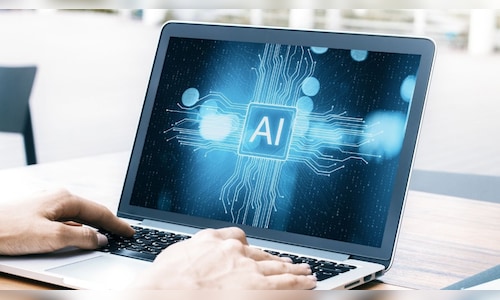By Kanika Sharma
In today’s rapidly evolving digital landscape, the real estate industry has embraced technology to streamline processes and enhance customer experiences. One of the most profound transformations has been the integration of Artificial Intelligence (AI) into real estate marketing strategies. However, as technology takes center stage, striking the right balance between automation and human connection becomes a critical consideration.

The Rise of AI in Real Estate Marketing
Artificial Intelligence has revolutionized the way real estate professionals operate. From predictive analytics to virtual property tours, AI-powered tools have made it possible to analyze market trends, predict property values, and showcase listings with unprecedented precision. One area where AI has particularly shone is in personalized marketing.
AI-driven algorithms can analyze vast amounts of data to identify potential buyers’ preferences, behavior patterns, and demographics. This enables real estate marketers to tailor their strategies, delivering the right properties to the right clients. Automated chatbots engage with website visitors, answering queries instantly and directing them to relevant listings. This personalized approach enhances customer experiences and saves time for both buyers and agents.
The Human Connection in Real Estate
While AI brings efficiency and personalization to real estate marketing, the human touch remains irreplaceable. Purchasing a property is a highly emotional decision, often influenced by intangible factors such as the feeling of “home” a place evokes. Real estate transactions involve significant investments, and buyers seek reassurance, guidance, and a sense of trust throughout the process.
This is where the synergy between AI and human interaction becomes crucial. An automated system might recommend properties based on data, but a human agent can comprehend the subtleties of a client’s desires that may not be quantifiable. Personalized conversations build rapport and trust, allowing agents to understand not just the technical specifications a client seeks, but the aspirations and emotions tied to their purchase.
Striking the Balance
The challenge lies in striking the right equilibrium between AI automation and human connection. Leveraging AI to automate routine tasks such as data analysis, appointment scheduling, and property matching can free up agents’ time, enabling them to focus on what they do best – building relationships and providing personalized guidance.
However, this does not mean relegating human interaction to the background. Instead, it’s about amplifying human abilities with AI-powered insights. An AI system can provide a real estate agent with data-driven suggestions, empowering them to offer more informed recommendations to clients. This blend of technology and personal touch creates a powerful synergy, ensuring clients benefit from both efficiency and emotional connection.
Enhancing Customer Experiences
Real estate transactions extend beyond the transactional aspect. The journey from property browsing to closing a deal involves multiple touchpoints. AI can enhance these touchpoints by providing instant responses, customized property suggestions, and virtual tours. Yet, there are moments when a client seeks advice during non-standard situations or when the emotional weight of a decision demands human empathy.
Consider a scenario where a client is torn between two properties. AI can provide data about market trends, pricing, and investment potential, but it’s the agent’s ability to listen and understand the client’s unique circumstances that can lead to a well-informed decision. Human agents offer reassurance and adaptability that automated systems can’t replicate.
Future Possibilities
The trajectory of AI in real estate marketing is exciting. As AI continues to evolve, it can potentially play an even more significant role in predicting buyer behaviors, refining property recommendations, and analyzing market trends. However, it’s essential to remember that no matter how advanced AI becomes, the essence of real estate – the emotional investment, the dreams, and the human element – will persist.
In conclusion, AI has undoubtedly revolutionized real estate marketing by offering efficient automation and personalization. The challenge lies in achieving a balance that enhances customer experiences without sacrificing the human connection. As technology evolves, real estate professionals must embrace AI as an augmentation tool rather than a replacement for human interaction.
In the realm of real estate, AI’s personal touch is not about eliminating the need for human agents but rather about empowering them to provide more meaningful interactions. By harnessing the insights that AI provides and coupling them with the emotional intelligence of human agents, the industry can offer clients the best of both worlds – the efficiency of technology and the empathy of personal connection. This delicate equilibrium is where the future of real estate marketing truly shines.
The author is drector,corporate marketing, Geetanjali Homestate
Follow us on Twitter, Facebook, LinkedIn





